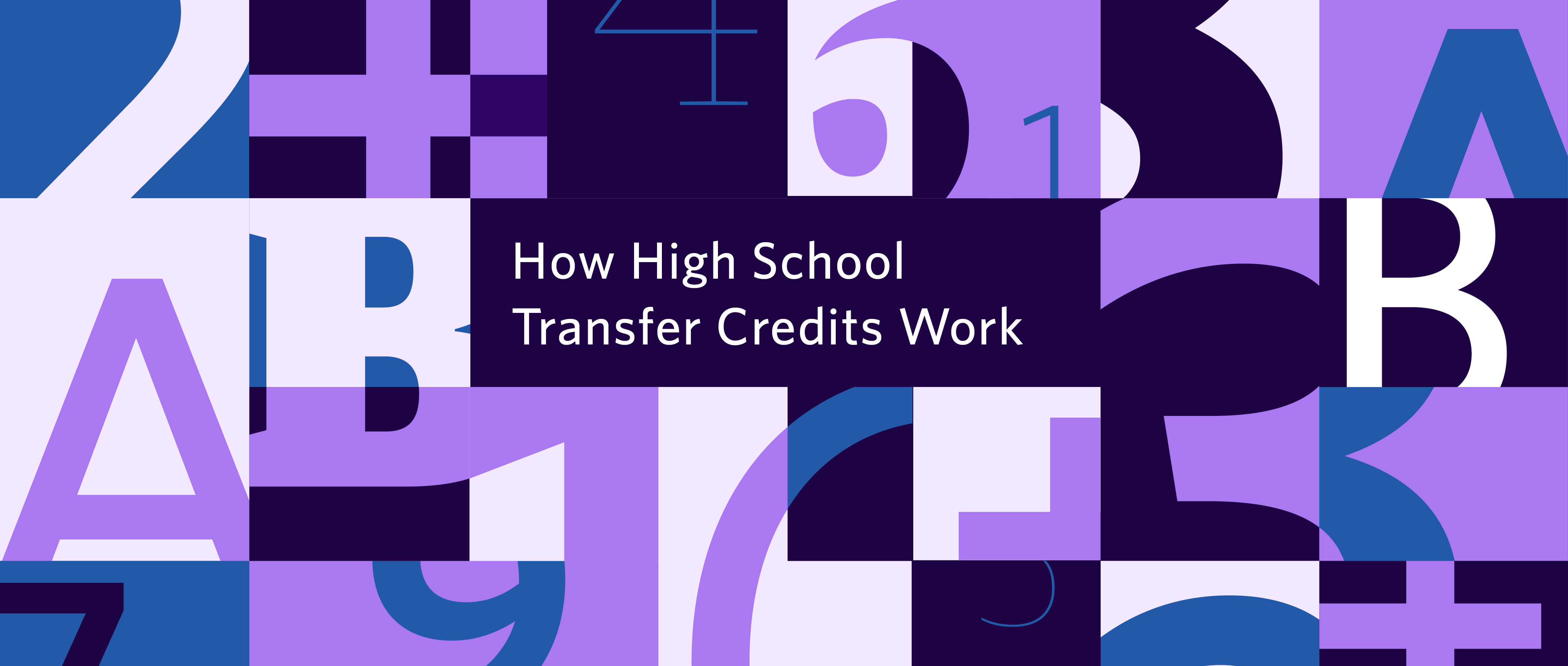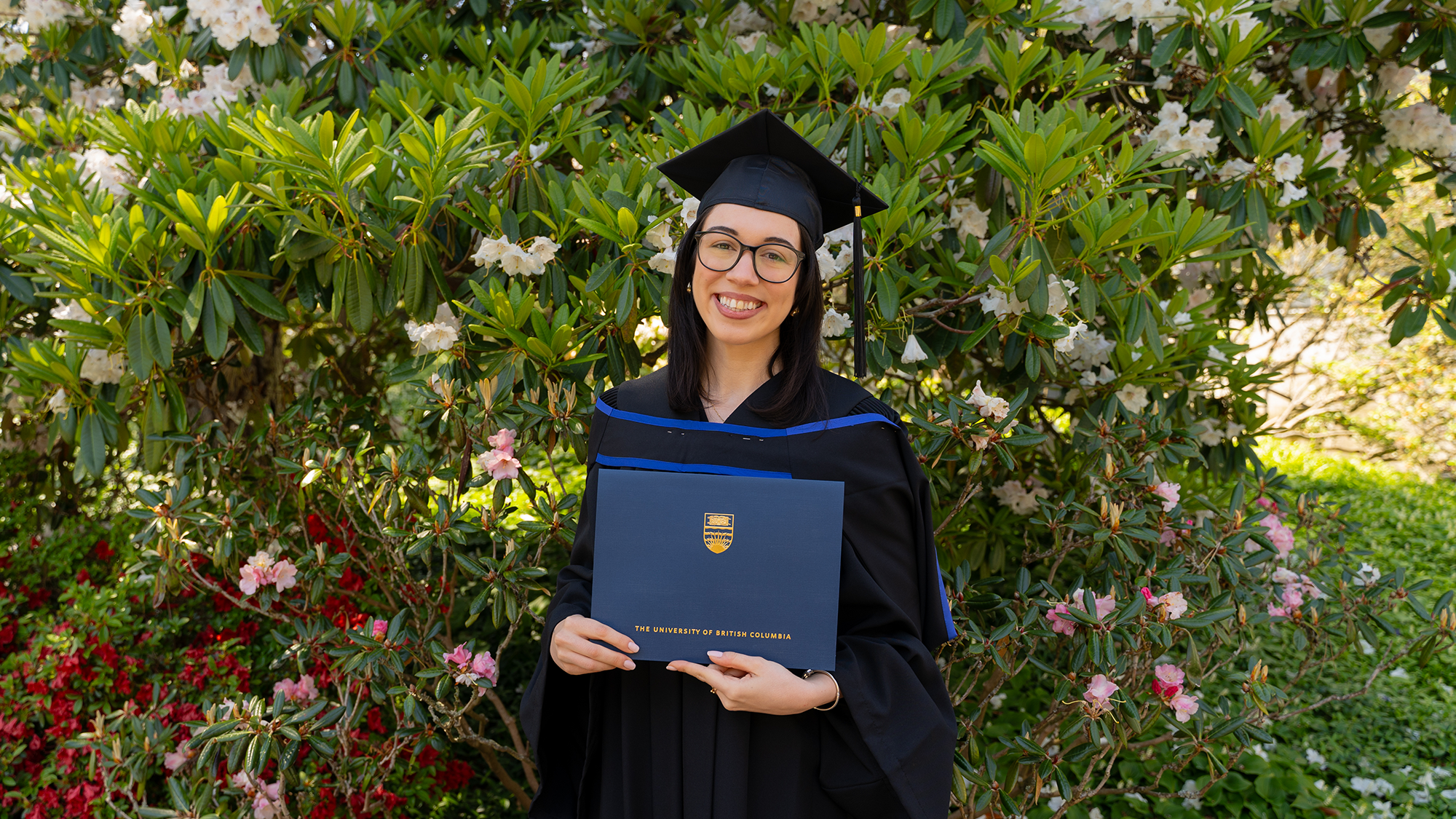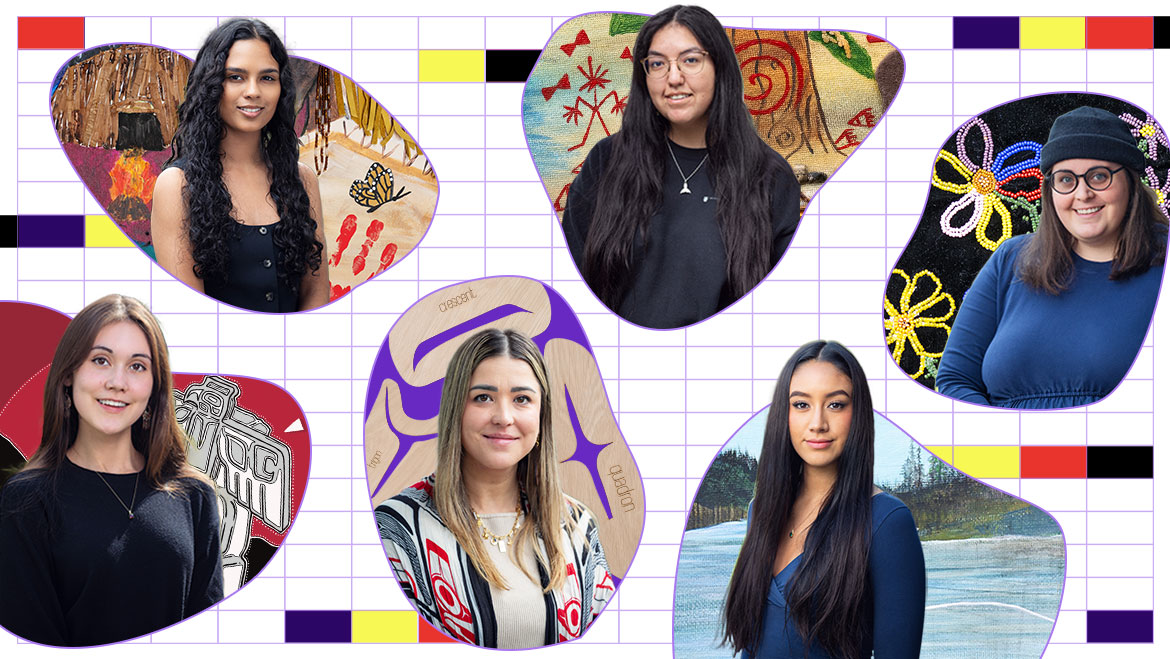

If you are entering the Faculty of Arts at UBC with university-level Advanced Placement (AP), International Baccalaureate (IB), or British-Patterned A-Level courses, you might be wondering how the courses apply toward your degree. Arts Academic Advisor Helen You answers some of the most common questions about transfer credit and shares her advice to help you feel more confident about your course planning.
When will my high school transfer credits be posted?
UBC Admissions begins receiving final AP, IB and A-Level results throughout July, August, and even into September.
Once your results are approved and finalized, UBC Admissions will post your transfer credits to your Workday Student profile. To view them, log into Workday and follow the steps to “Viewing your transfer credit or high school and AP/IB Credit”.
Keep in mind that credits are posted course by course, not student by student, so you may see credits for some courses appear before others. This process takes time. Typically IB credits are posted mid-August, while A-Levels tend to be posted in September.
How can I plan for registration before transfer credits are posted?
As a first-year student, you will register for your Winter Session courses at the end of June. In most cases, you’ll register for your first-year courses before your transfer credits have been officially applied to your degree. If your official results are not available before your registration date, use UBC’s First-Year credit guide to help estimate how your credits will transfer, or speak with an Arts Academic Advisor for additional guidance. An Advisor will ask you about your academic goals and interests to help you choose courses and register strategically.
Be sure to register at your assigned time as many courses fill up quickly. You can always make changes to your registration later, until the add/drop deadline.
What’s the difference between General Credit and Specific Credit?
General Credit means the course you took in high school doesn’t have a direct UBC equivalent. In Workday Student, these credits appear without a specific course code. For example: “ENGL_V 1ST -” or “PSYC_V 2ND.” General Credits can most often count towards your electives, though they may also contribute to more specific requirements like the Arts credit minimum or the outside requirement.
If you have General Credit for a course, you can take UBC courses in the same subject area and level and receive credit for them. For example, if you received general credit for British-patterned Psychology (PSYC 1st), you can also take PSYC 101 at UBC and receive full credit for that, because high school Psychology differs enough from PSYC 101 or 102 at UBC.
However, if you’re hoping to use General Credits to meet prerequisites for more advanced courses (200-level or higher) in the same subject area, you will need to contact the department directly. In many cases, using General Credit as a prerequisite, especially if you’re planning to major in the subject, is not recommended. The department can help clarify your options.
Specific Credit means your high school course has a direct equivalent to a UBC course. For example, IB Mathematics HL with a score of 6 is equivalent to MATH 100 and MATH 101 at UBC. You won’t need to take those courses again, and can register for a higher-level course that lists them as prerequisites.
Specific Credits may be used toward your program (Honours, Major, Minor) or degree requirements, or as electives.
Should I repeat a course even though I received Specific Credit for it?
If you’re not confident about moving directly into a more advanced course, you might consider repeating the course at UBC to strengthen or refresh your knowledge in the subject. However, it is important to note that you will not receive additional credit for it, and the course can’t be applied again to your degree requirements.
To help you decide, consider the following questions:
- Do you plan to major in the subject, need a refresher, or want a stronger foundation?
- Did you miss key parts of the course or final examination in high school?
If you answered yes to either of the questions above, repeating the course might help you feel more prepared.
How do I course plan with transfer credits?
Once transfer credits are posted on Workday, you don’t need to do anything further to receive and apply those credits to your degree. They’ll automatically count toward your degree where appropriate. However, it’s important to keep them in mind as you plan your courses. For example:
- If you have English transfer credit (ENGL 1st), it will not fulfill the Writing Component of the Writing and Research Requirement. You must plan to complete one of the following: Arts One, CAP_V 100 through the Coordinated Arts Program (CAP), ENGL_V 100, or WRDS_V 151.
- High school transfer credits can count towards your Ways of Knowing Breadth Areas. For example, if your Ways of Knowing plan includes 9 credits of PHIL (within Humanities and Creative Arts), you could combine 6 credits of Philosophy at UBC with 3 PHIL 1st transfer credits to complete this as your 9 credit area.
- Transfer credits cannot count towards your Place and Power requirement. For example, PHIL 1st will not count towards your Place and Power requirement – you would need to take a course on the Place and Power course list.
- If you received transfer credits for a language course at UBC, and you hope to take the same language during your BA, consult with Arts Advising or the language’s departmental staff to ensure you take the appropriate level of language classes.
Can I take fewer courses in my first year if I have transfer credit?
If you enter UBC with first-year transfer credit, you have the option to take a lighter course load in your first Winter Session, but be aware that you need to complete at least 27 credits to be promoted to second-year class standing (this just means moving from first to second year in your degree). Your high school transfer credits will count towards your class standing.
To be considered a full-time Arts student, you must be registered in at least 9 credits per term. If you’re receiving financial aid, living in student housing, playing on a varsity team, or studying in Canada on a study permit, you may be required to maintain a different minimum number of credits. Make sure you’re familiar with the specific requirements that apply to your situation.
Still need help with understanding transfer credit, course planning, or preparing for registration? Consider attending a first-year planning or registration workshop, or book an appointment with an Arts Advisor.


Helen You graduated from UBC with a BA and MEd. She has been an Arts Academic Advisor since 2018 and enjoys helping students transition to university and explore the possibilities of their Arts degree.


